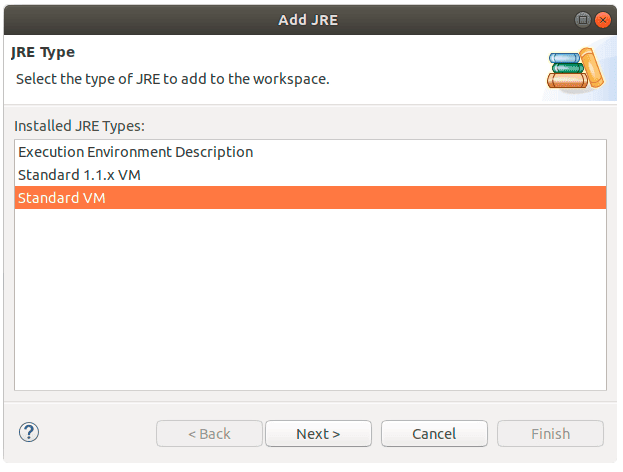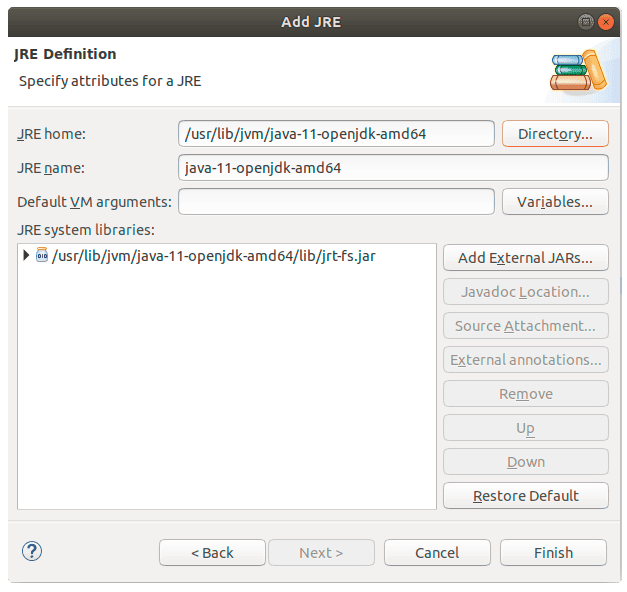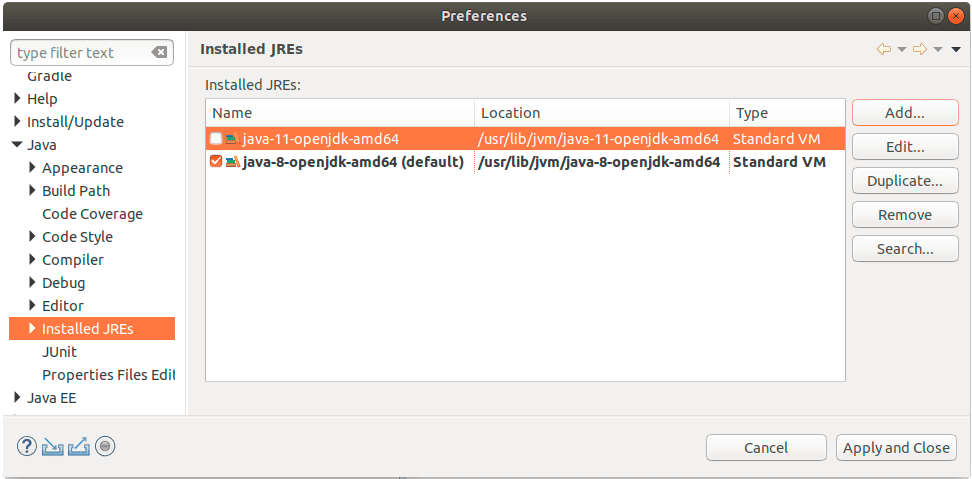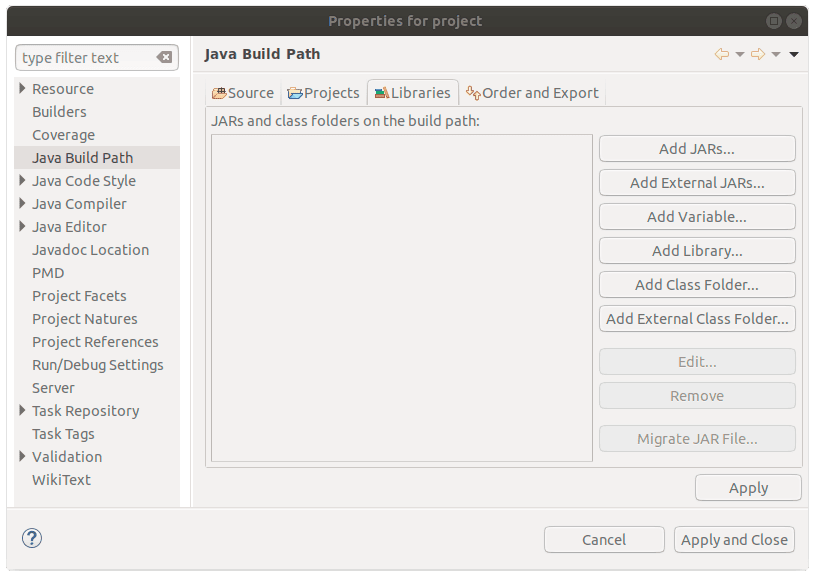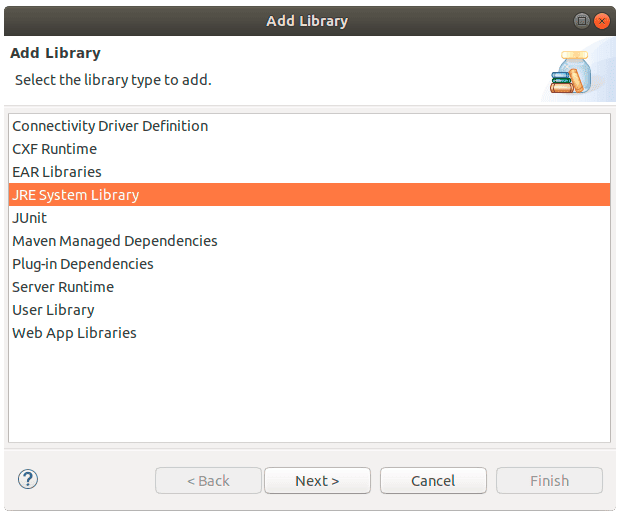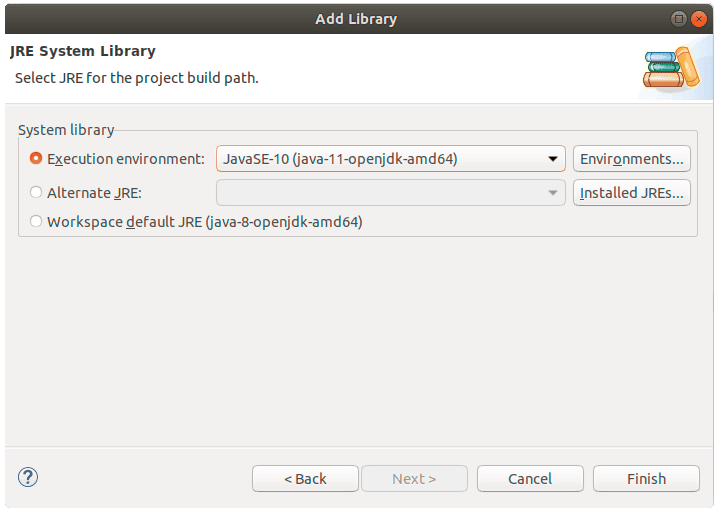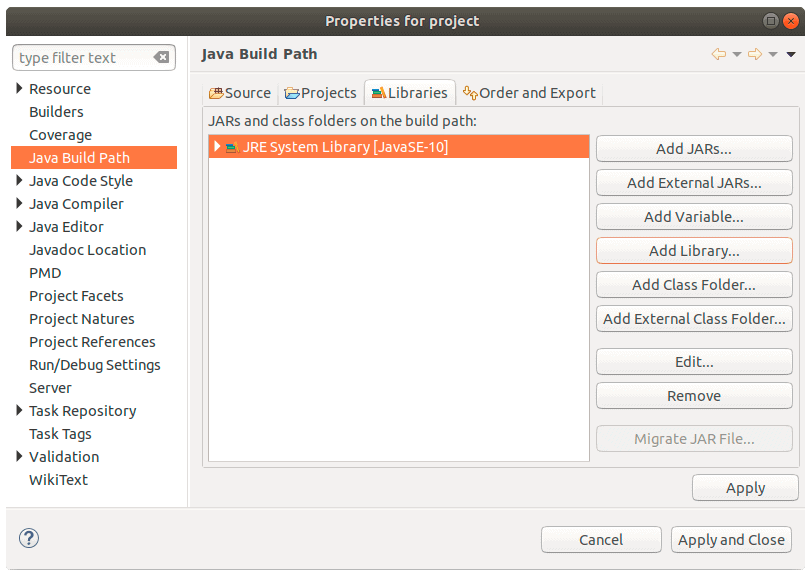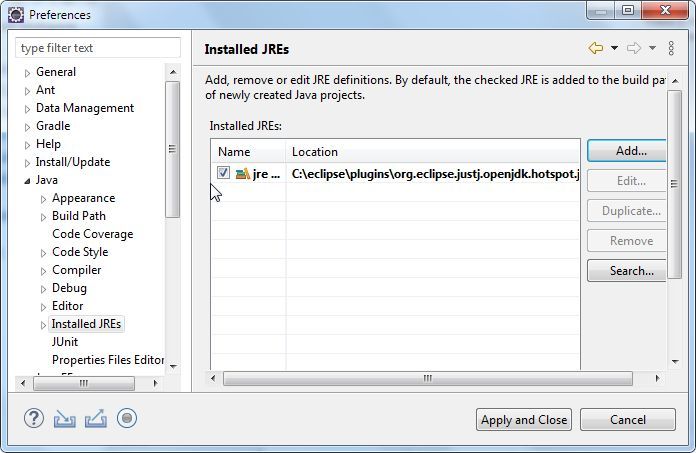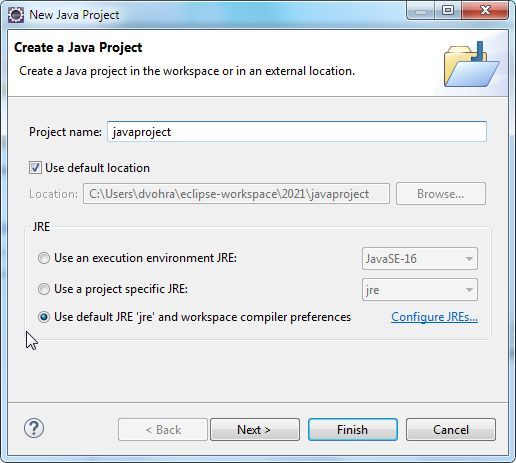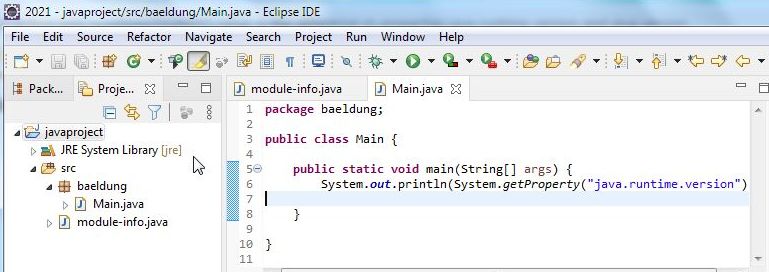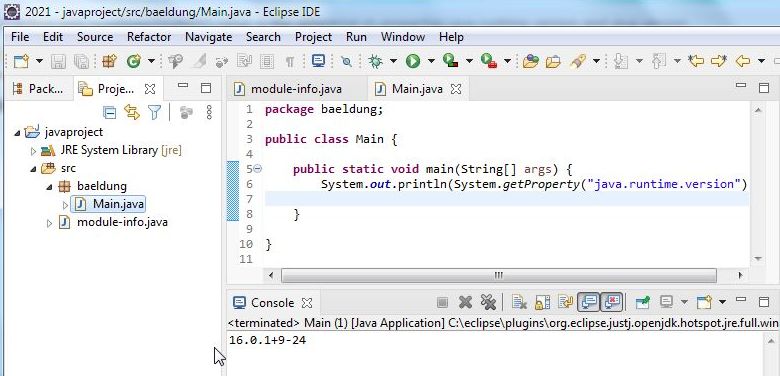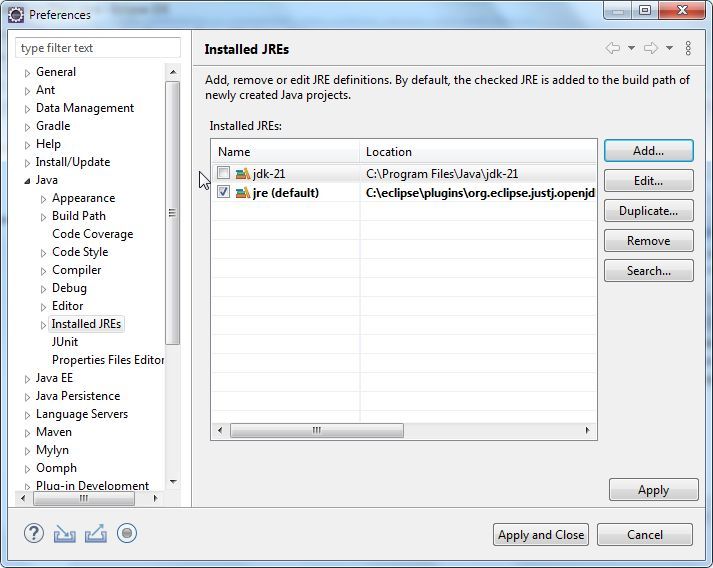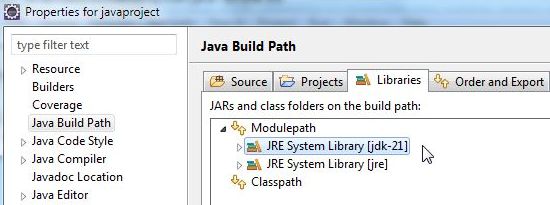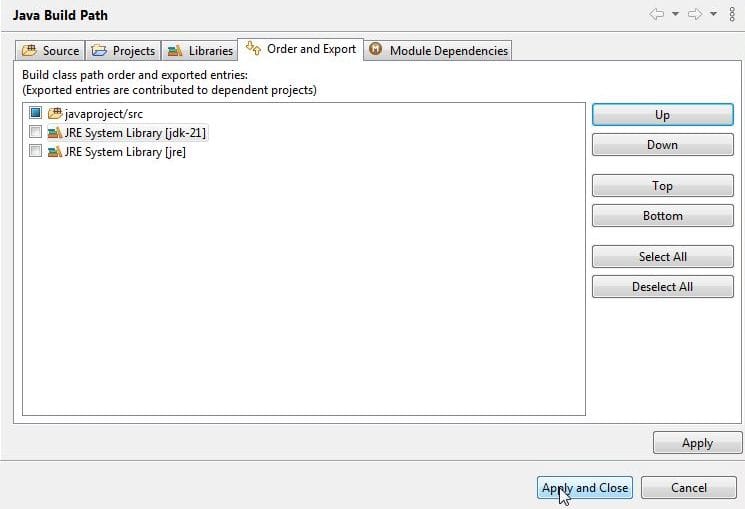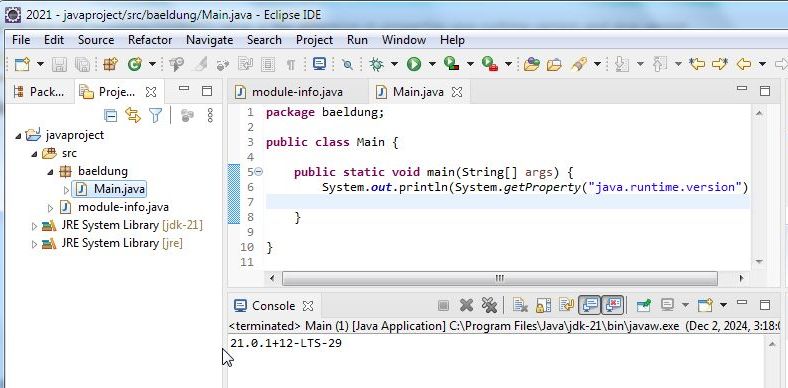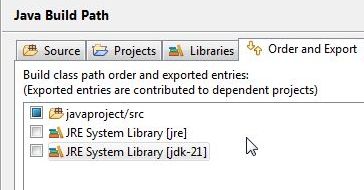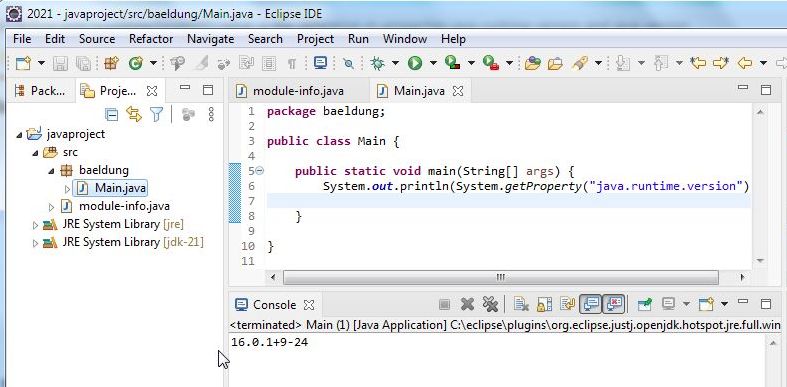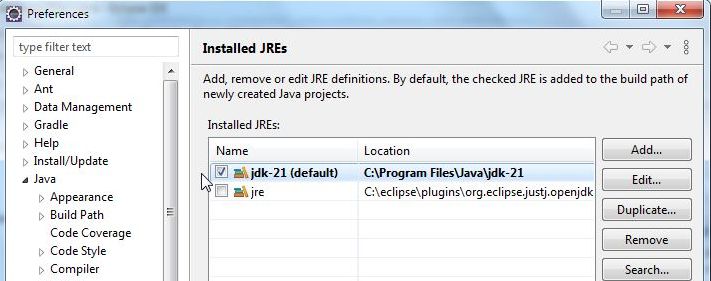1. 概述
Java 生态发展迅速,JDK 至少每年发布一个新版本,我们迟早会遇到需要升级项目所使用的 Java 版本的情况。
本文将快速介绍如何在 Eclipse 中查看已安装的 JRE、添加新的 JRE,并切换项目所使用的 Java 版本,以便在需要时从容应对。
2. 确认所需 JRE 是否已在 Eclipse 中可用
首先确保你已经在系统中安装了目标版本的 JDK/JRE(参考 如何确认 JDK 是否已安装),然后需要确认该版本是否已被 Eclipse 识别。
打开 Window -> Preferences,然后导航到 Java -> Installed JREs:
如果目标版本已经列出,那就可以直接使用了 ✅。
但如果我们需要使用 Java 9、10 或 11,而当前只安装了 JDK 8,那么就需要手动添加。
3. 在 Eclipse 中添加新的 JRE
在 Window -> Preferences 窗口中,点击 Add… 按钮。选择 JRE 类型时,选择 Standard VM:
接着指定新 JRE 的安装路径(JRE home),然后点击 Finish:
完成后,IDE 中将显示两个已配置的 JRE:
4. 修改项目所使用的 Java 版本
假设我们当前项目使用的是 Java 8,现在想切换到 Java 10:
右键项目 -> Properties -> Java Build Path,选中当前的 JRE,点击 Remove:
然后点击 Add Library,选择 JRE System Library:
选择我们刚刚安装的 JavaSE-10,点击 Finish:
此时项目的 Java Build Path 已更新:
⚠️ 还有一个关键步骤:确保 Java Compiler 的 Compiler Compliance Level 设置正确:
如果发现不一致,可以取消勾选 Use compliance from execution environment,手动选择正确的版本。
最终项目结构如下:
5. 切换 Java 版本的几种方式
项目演进过程中,可能需要更换所使用的 Java 版本。但注意:不需要删除项目重建,也不一定非得移除旧的 JRE System Library。
虽然 Eclipse 界面中仍大量使用“JRE”一词,但从 Java 11 开始,JDK 已内置 JRE,因此不再严格区分。
Eclipse 中有以下几种 JRE 使用场景:
- ✅ Default JRE:工作空间的默认 JRE,所有新项目默认使用它。只有一个可以被设为默认。
- ✅ Project JRE:项目构建时使用的 JRE,可与默认 JRE 不同。
- ✅ Runtime JRE:项目运行时使用的 JRE,可在运行配置中修改。
- ✅ Alternate JRE:非默认的其他 JRE,可作为项目或运行时 JRE 使用。
5.1. 设置默认 JRE
在创建任何项目之前,建议先设置好默认 JRE:
选择 Window > Preferences > Java > Installed JREs,勾选目标版本为默认:
5.2. 为新项目选择 JRE
创建新项目时,默认使用当前的默认 JRE:
项目创建后会绑定该 JRE:
测试一下运行时版本:
public class Main {
public static void main(String[] args) {
System.out.println(System.getProperty("java.runtime.version"));
}
}
输出如下:
5.3. 添加新的 Java 版本 JRE
假设我们要切换到 Java 21,先安装对应的 JDK:
点击 Apply and Close 保存设置。
5.4. 修改项目构建路径中的 JRE
在 Java Build Path 中添加新的 JRE System Library:
切换到 Order and Export 标签页,选中新添加的库,点击 Up 按钮提升优先级:
点击 Apply and Close 保存更改:
5.5. 使用新版本运行应用
再次运行程序,输出将变为新版本:
5.6. 切回旧版本
只需在 Order and Export 中将旧版本的 JRE System Library 移动到顶部即可:
再次运行程序,可以看到版本已回退:
5.7. 将新版本设为默认 JRE
如果希望所有新项目默认使用新版本,只需在 Installed JREs 中将其设为默认:
6. 总结
本文介绍了如何在 Eclipse 中添加新的 JRE,并切换项目使用的 Java 版本。通过配置项目构建路径和运行时设置,我们可以灵活地在多个 Java 版本之间切换,而无需重建项目。这对于日常开发和升级迁移非常实用 ✅。

